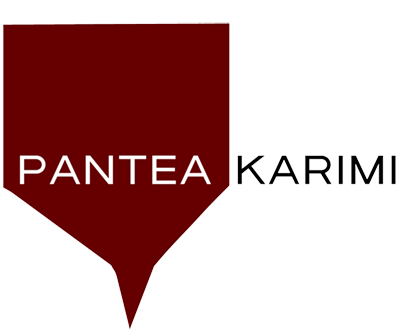by Justin Ebrahemi

‘The struggle continues’
For many women who grew up in Iran, subservience was inculcated at an early age. “Learning was intertwined with religious indoctrination,” says Pantea Karimi, a San Jose visual artist who left Iran in early 2001 after experiencing harassment on multiple occasions from the morality police. “I was subjected to this systematic brainwashing to make me a religious female product.”
Now, Karimi draws from her experiences in post-revolutionary Iran to create work that simultaneously celebrates and protests Iranian life. One symbol reappears: the Kaaba (or “cube” in Arabic), the most sacred Islamic site.
Like Nouri, Karimi moved quickly to address the protests in her own work, which erupted while she was preparing a solo exhibition for Oakland’s Mercury 20 Gallery. “The upheaval and flashbacks took me to a very dark, emotional place,” Karimi says, and she felt compelled to reinvent her show.
For her exhibition, Karimi marked the opening and closing by staging a performance around Naked Cube, a sculpture made with donated hair. The piece is dedicated to Iranian women and girls, including Karimi’s cousin, who was beaten by the morality police just a few months ago.
“The piece is symbolic of simultaneous bravery and mourning,” explains Karimi. “None of the hair I presented in the piece was truly free — they were pinned to the broken glass, because the struggle continues.”
Karimi says the response from her friends and family in Iran was overwhelmingly positive, and Naked Cube has allowed her to finally express the hardship she endured as a child and young adult. She hopes to reprise the exhibition to keep advocating on behalf of the uprising, saying, “The struggle of Iranian women to gain their agency cannot die.”
